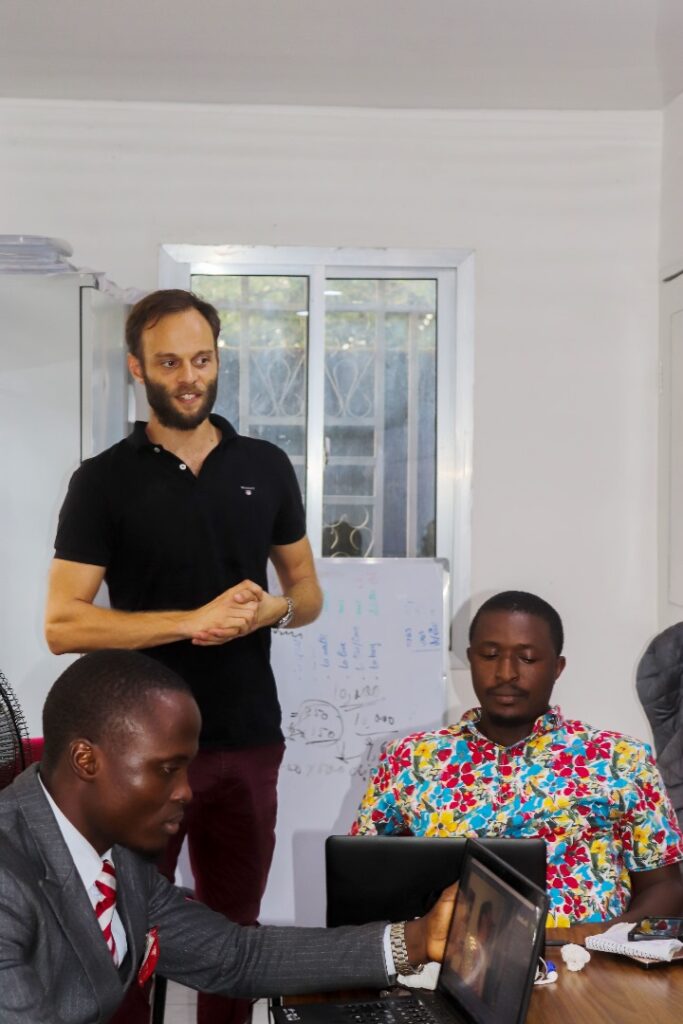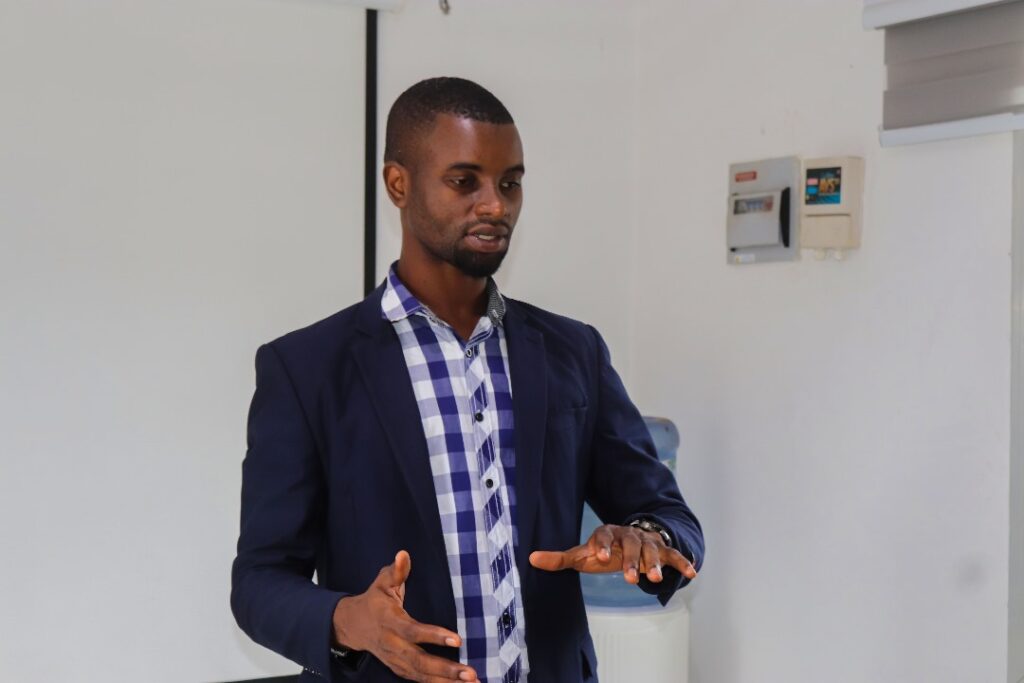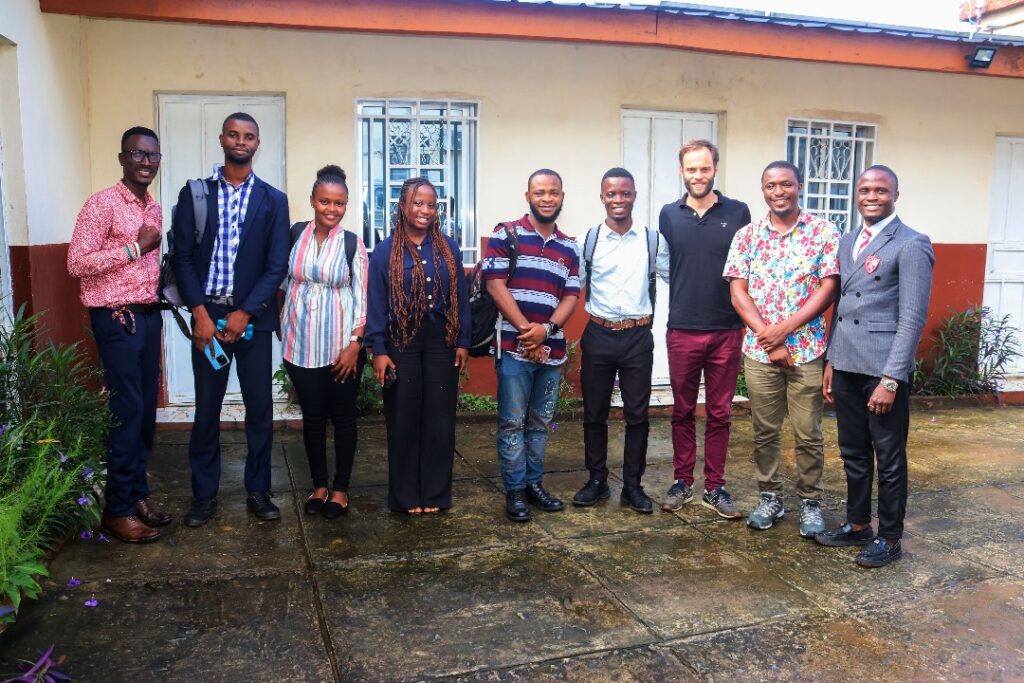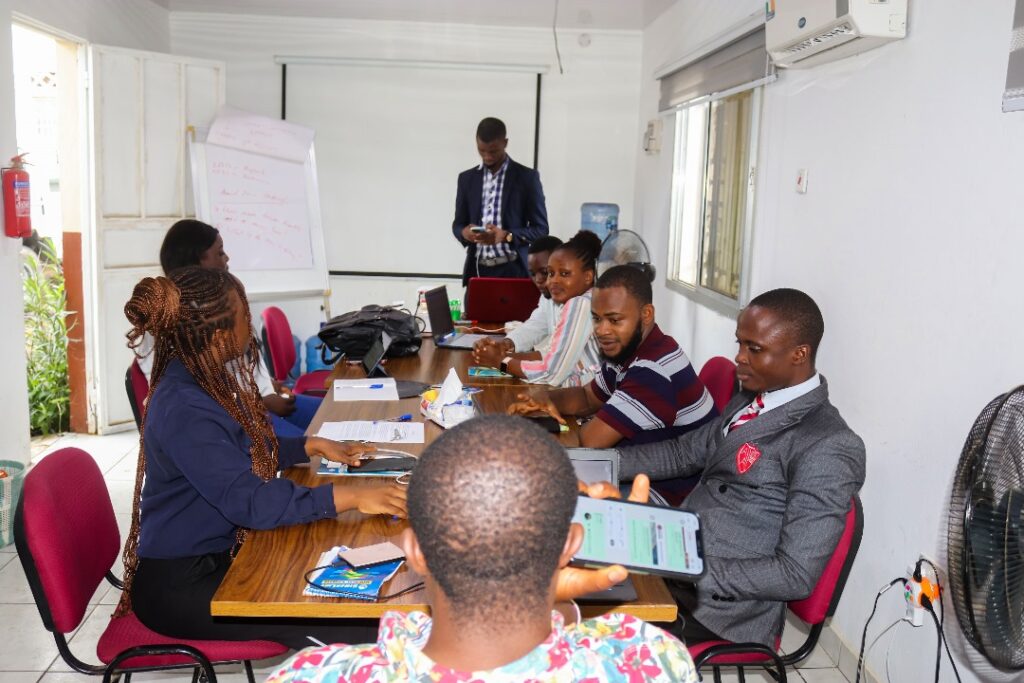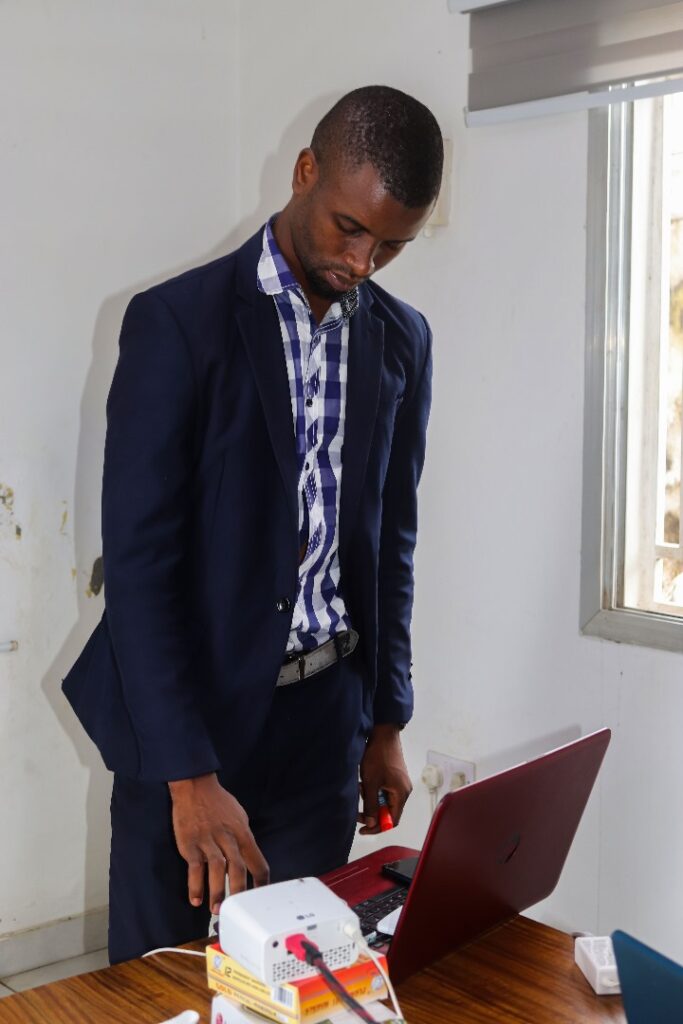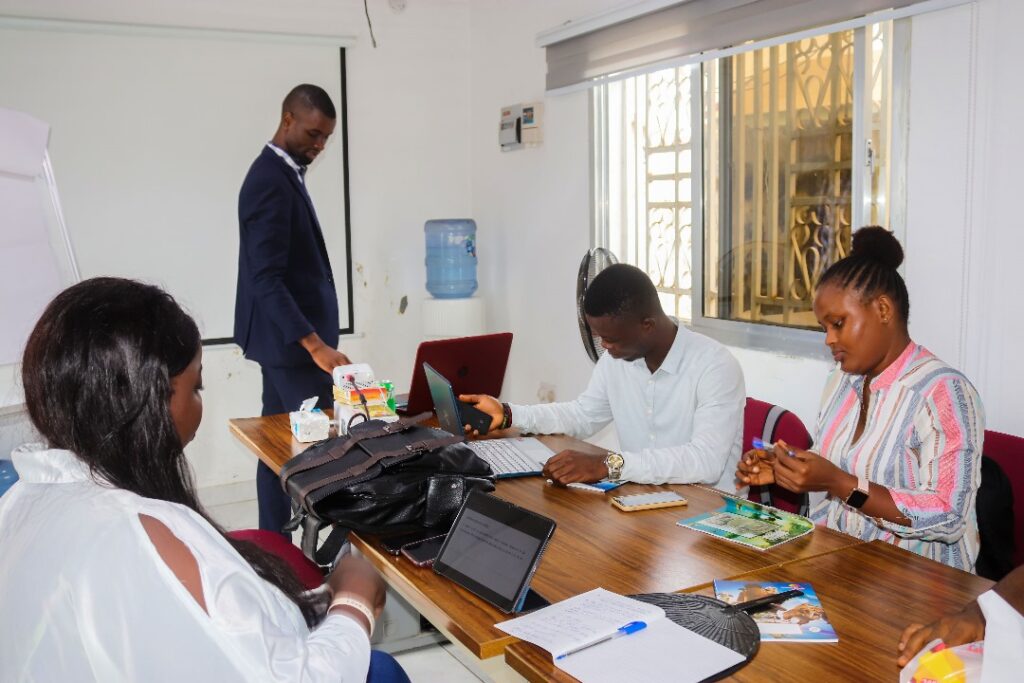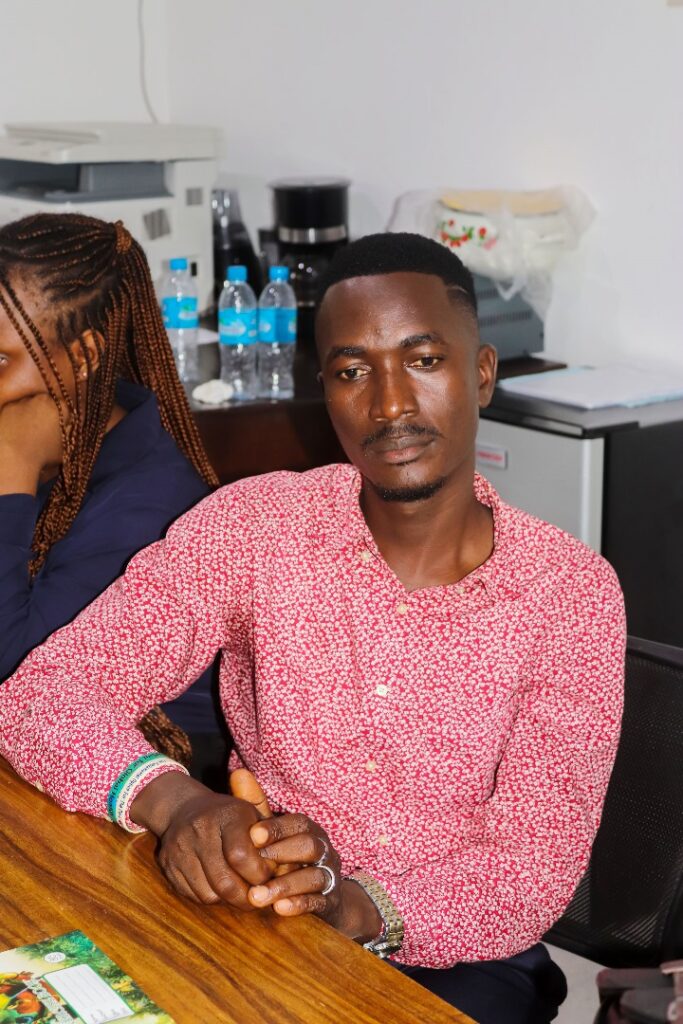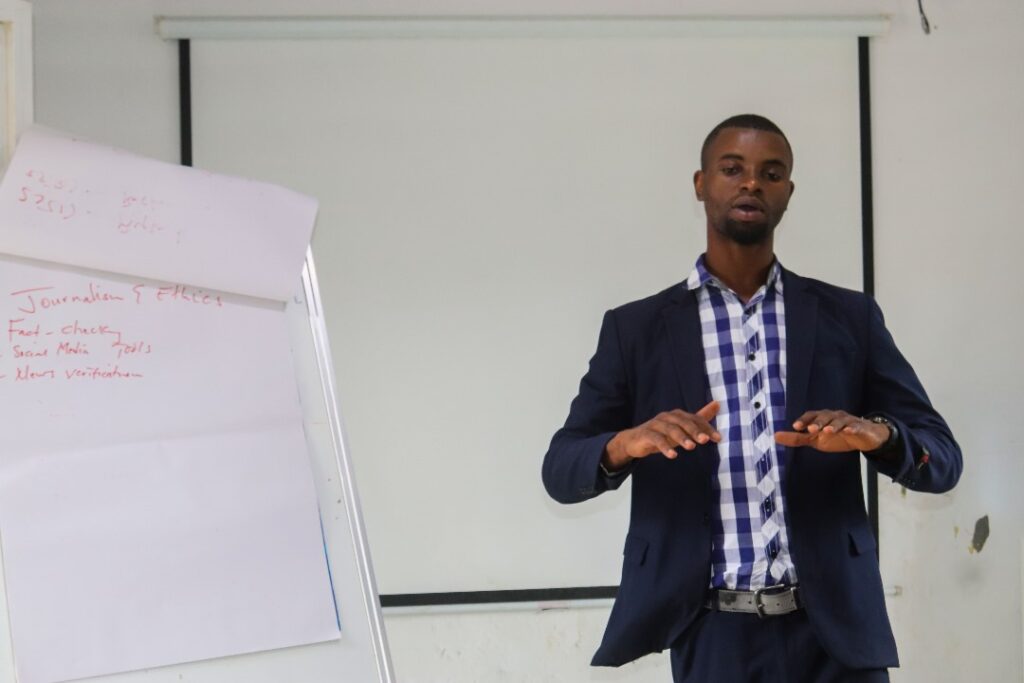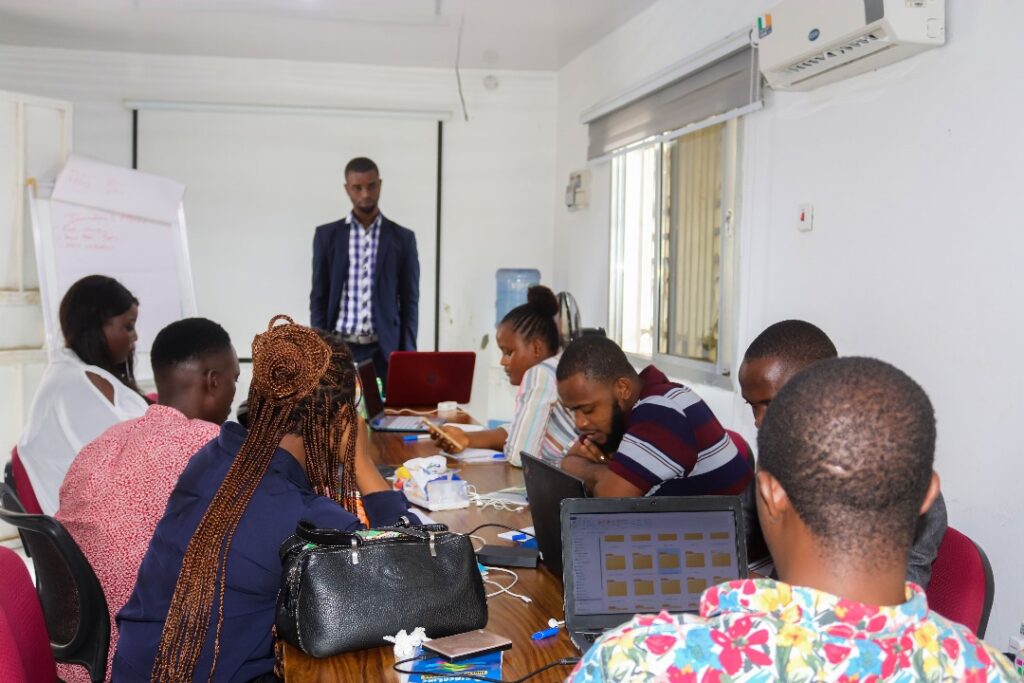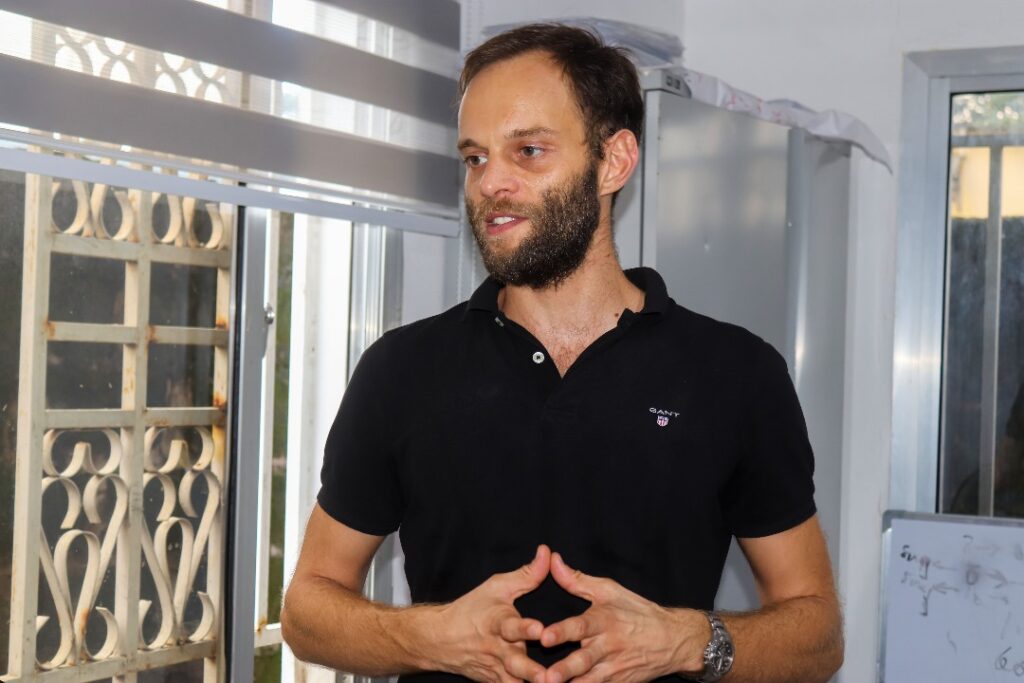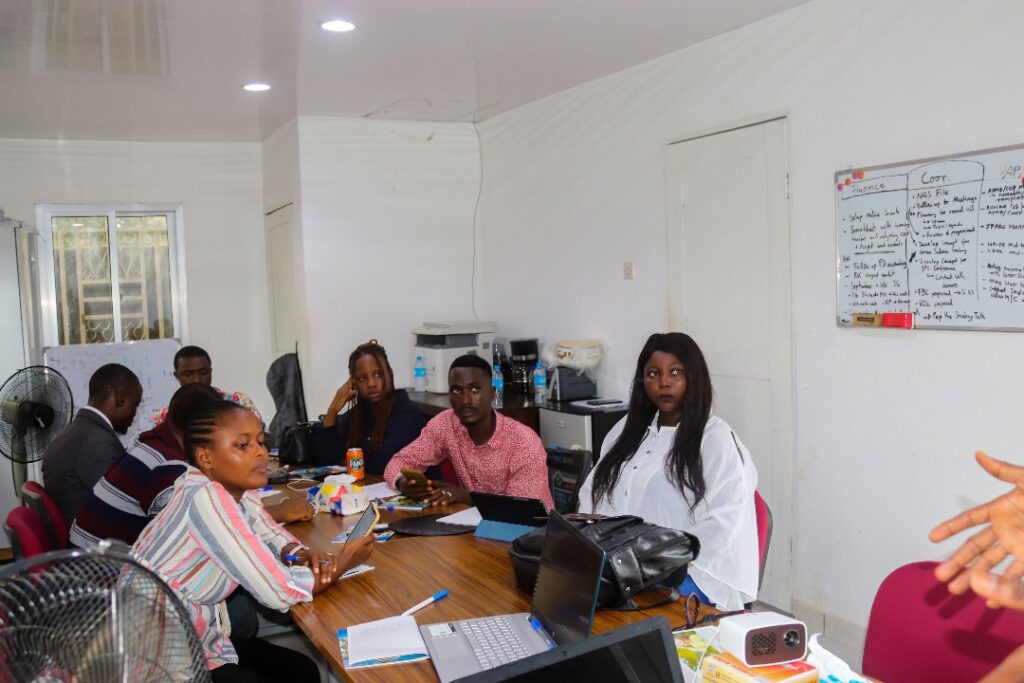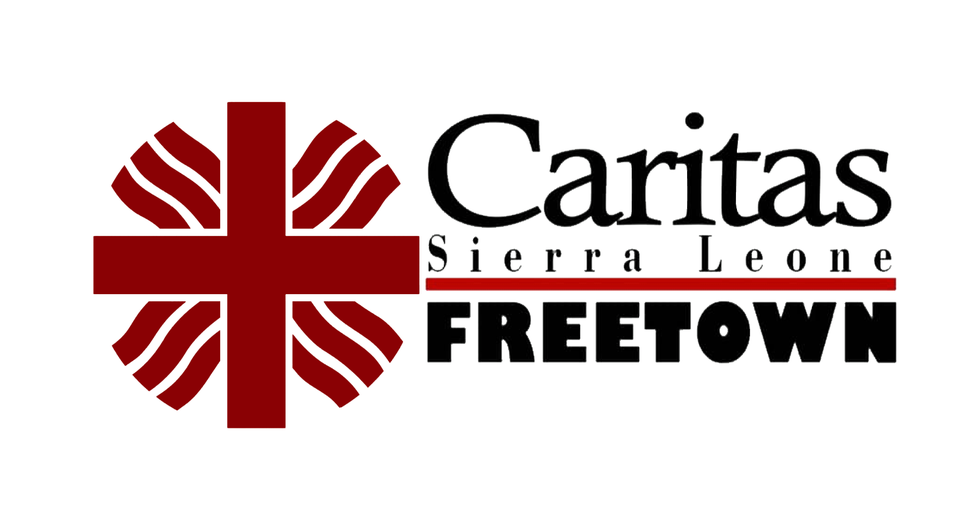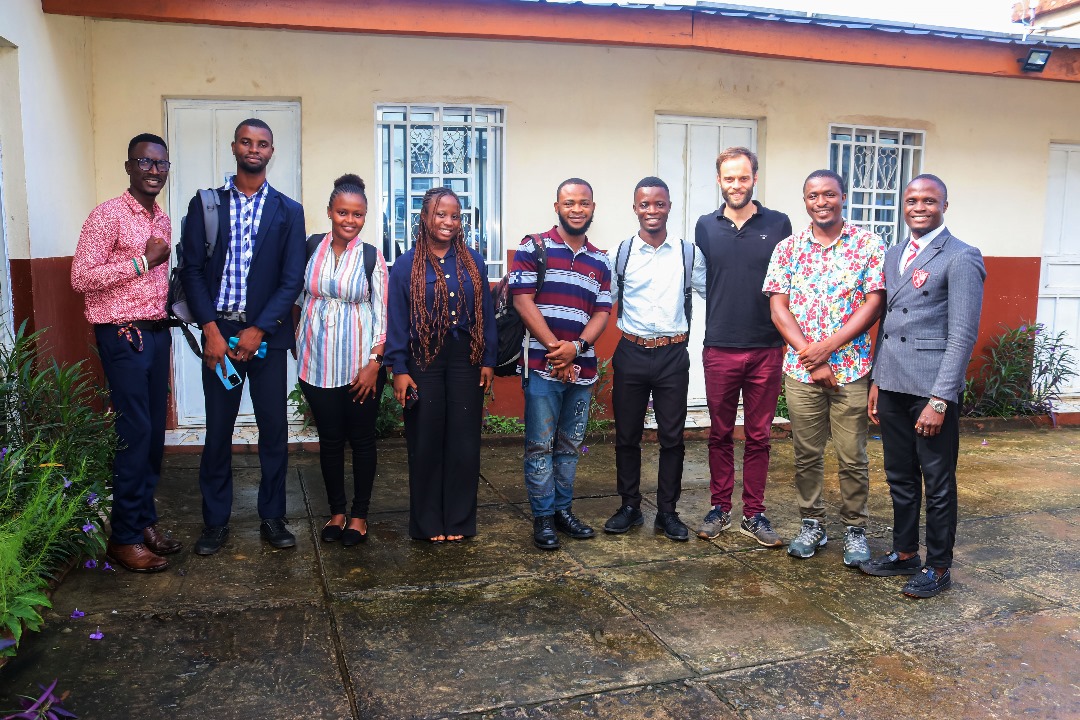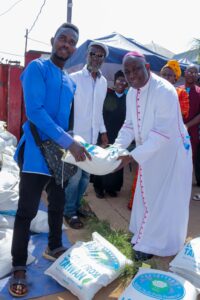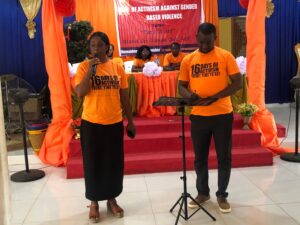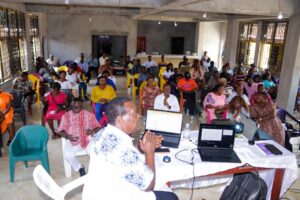On September 10, 2024, Agiamondo, in collaboration with Caritas Freetown, conducted a one-day capacity-building session on Media Law and Ethics at the Agiamondo conference room in Kingtom, Freetown. The training aimed to strengthen the knowledge of Caritas Freetown’s media staff and the Sick Pikin Project volunteers on ethical journalism, fact-checking, and the legal framework governing media operations in Sierra Leone.
Facilitated by Mr. Sheku P. Kamara, the session began with a warm welcome to participants, followed by an invitation to actively engage throughout the training. Mr. Kamara also administered a pre-test survey on media law and ethics, based on feedback previously gathered via email. He described Media Law and Ethics as a critical framework for ensuring that media professionals ethically handle information, particularly when using content from the public. Emphasizing the importance of transparency and accountability in journalism, he highlighted these principles as essential to the work of Caritas Freetown in the humanitarian sector.
A significant portion of the training was dedicated to discussing the legal limitations on freedom of expression as outlined in the 1991 Constitution of Sierra Leone. Mr. Kamara explained Section 25(1), which guarantees citizens’ right to free expression, and Section 25(2), which places restrictions on that right in accordance with the Independent Media Commission (IMC) Code of Practice. Additionally, the session covered the Sierra Leone Association of Journalists’ Code of Conduct, shedding light on topics such as copyright, reporting on children, handling stories under grief and shock among others, all of which are relevant to Caritas Freetown’s operations.
Fact-checking was another key focus of the training, with Mr. Kamara stressing its importance in maintaining journalistic integrity. He outlined both internal and external fact-checking methods and urged participants to ensure the accuracy and reliability of their reporting. By practicing thorough fact-checking, media professionals can not only safeguard the credibility of their work but also protect the reputations of the organizations they represent.
The training also addressed ethical issues such as anonymity and source confidentiality, which are crucial in investigative journalism. Protecting the identity of sources is essential, particularly when revealing sensitive information that may pose risks to individuals.
The event concluded with recommendations for the participants to maintain ethical standards while balancing accuracy and transparency in the dispensation of their duties. The session saw active participation from representatives of the Caritas Media and the Sick Pikin Project.
This training provided participants with valuable insights into their legal and ethical responsibilities as media practitioners, equipping them with the tools necessary to navigate the complex field of media law and ethics in Sierra Leone.
